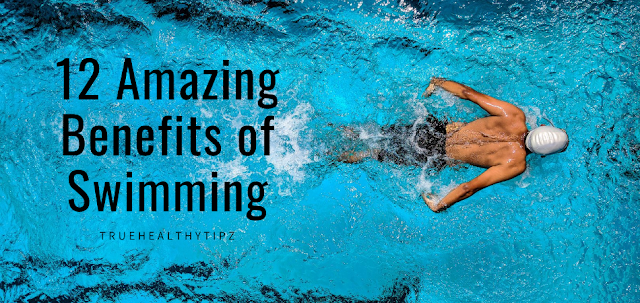Imagine a swimmer floating effortlessly in the water, reaching the opposite end of the pool with one toe. With each breathe, oxygen saturates the blood and energy fills their body. The pool is like a warm bath: your joints and muscles begin to relax and your blood pressure drops. And after 30 minutes of exercise, you will find that the pool has become your healthiest escape.
Swimming allows you to exercise without plateaus, muscles aches or physical limits. It also encourages cardiovascular fitness by elevating your heart rate and strengthening respiratory muscles for deeper breathing. The high intensity environment reduces effects of stress and anxiety which can increase risks of health issues such as heart disease and chronic mental illnesses. As we age we may experience joint pain, which is soothed by the buoyancy within the water acting as a sort of weightlessness. The heightened levels of hydration.
So, if you're looking for a way to keep in shape while enjoying leisure without lifting a finger, swimming might just be perfect for you!
Swimming is known to enhance your cardiovascular system, provide relief from stress, sneakily helps you get to work on an appetite etc. But have you heard about its other benefits? Well, this article will explore 8 more perks of swimming that might just give it that extra edge that you're looking for
Swimming is another family-friendly sport that offers a number of health benefits. It's one of the best ways to maintain cardiovascular fitness and body control, while also strengthening muscles. Continued participation in swimming can make you more agile and improve your balance and proprioception (body awareness). Swimming is great for the heart too: it strengthens the heart muscle, and improves both its ability to pump blood and its endurance. Remember to keep up with your hygiene while you're in the water: it's important to shower afterwards, and change into dry clothes before heading out onto warm surfaces such as pavements or bedding.
As well as taking care of our physical well-being, we can get additional health benefits from swimming by socialising with other swimmers in the pool, whether they're friends or strangers.
Benefits of Swimming for Health
1. Works your whole body
Swimming is good for your heart and lungs. This teaches the body to use oxygen more effectively, which results in a decrease in resting heart rate and breathing rate. It makes use of the arms, legs, and other muscular groups in the process. Muscle strength and flexibility develop as a result of this.
2. Works your insides, too
Swimming tones, strengthens, and keeps your muscles supple by working your entire body from top to bottom. You utilise your arms and shoulders, back and chest, legs and feet during swimming. Your core, upper body, and lower body all get a great workout.
3. Is appropriate for people with injuries, arthritis, and other conditions
Patients with arthritis and fibromyalgia benefit from heated pools because the warmth relaxes muscles and reduces pain and stiffness. Warm water also dilates blood arteries, which improves circulation.
4. Good option for people with asthma
Swimming has long been suggested for asthma sufferers because the warm, humid environment is less irritating. According to several research, there may be a relationship between asthma symptoms and swimming in chlorinated pools. The fundamental theory is that pool chlorine and its byproducts can irritate the airways.
5. Beneficial for people with Multiple Scelerosis, too
Swimming can also help with tiredness, which affects around 80% of persons with MS. 8 weeks of water exercise was demonstrated to lessen tiredness and enhance quality of life in patients with MS in another study review released in 2020.
6. Torches calories
Swimming the breaststroke for 30 minutes burns roughly 367 calories, whereas swimming freestyle burns around 404 calories. In comparison, 30 minutes of brisk walking or 300 minutes of jogging at 6 miles per hour burns just 100 calories.
8. Boosts your mood
Swimming appears to be particularly effective in influencing mood through increasing the levels of neurotransmitters such as serotonin, noradrenalin, and dopamine in the brain. These "feel-good" brain chemicals are increased by rigorous physical exercise, as are steroid reserves, allowing you to become more stress resistant.
7. Improves your sleep
Swimming may be even better for sleep than other types of exercise since the water keeps your body temperature down through heat transmission to the surrounding water. It is a great way to stay cool. Swimming keeps you cooler than other types of exercise that don't include water and heat transmission.
9. Helps manage stress
Swimming increases the release of neurochemicals in the brain that make the body feel good and reduce stress. The extra impact of water flowing over the body when swimming gives a soothing sensation that promotes relaxation.
10. Safe during pregnancy
Swimming is safe to do while pregnant as long as you take certain precautions. It assists you in staying fit and feeling better as your body changes. If this is your first pregnancy or you have a high-risk pregnancy, see your healthcare practitioner, midwife, or physiotherapist before you begin swimming.
11. Great for kids, too
One of the advantages of swimming for kids is that their lung and heart health improves dramatically with cardiovascular activity. Swimming also helps children build strength and endurance because of all the energetic motions involved. Swimming also improves the flexibility and balance of the body.
12. Affordable
Swimming does not requires any equipment or accessories. It needs just a pool with safe and hygiene water.







No comments:
Post a Comment